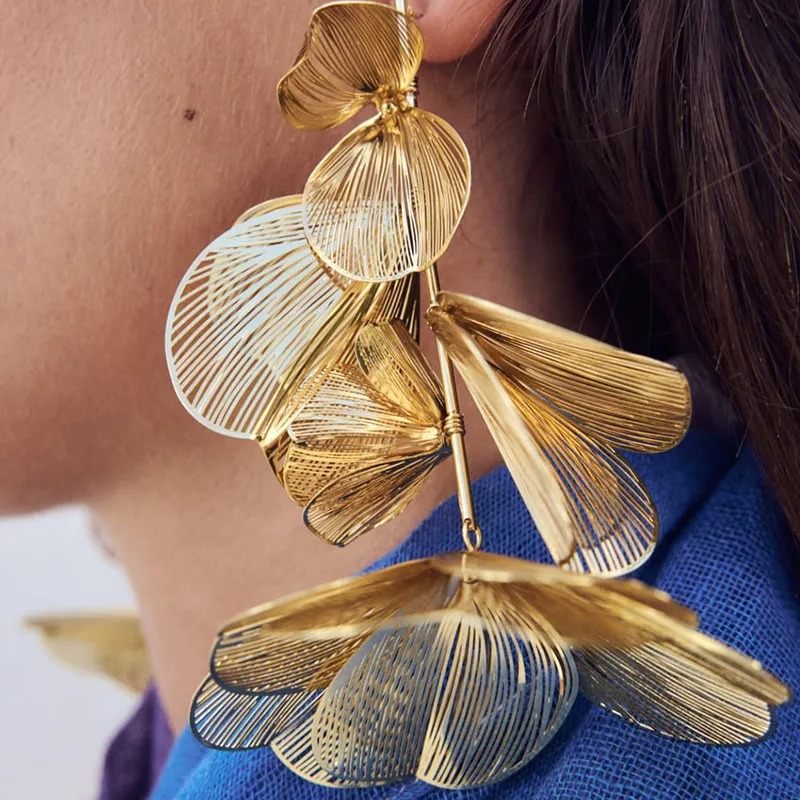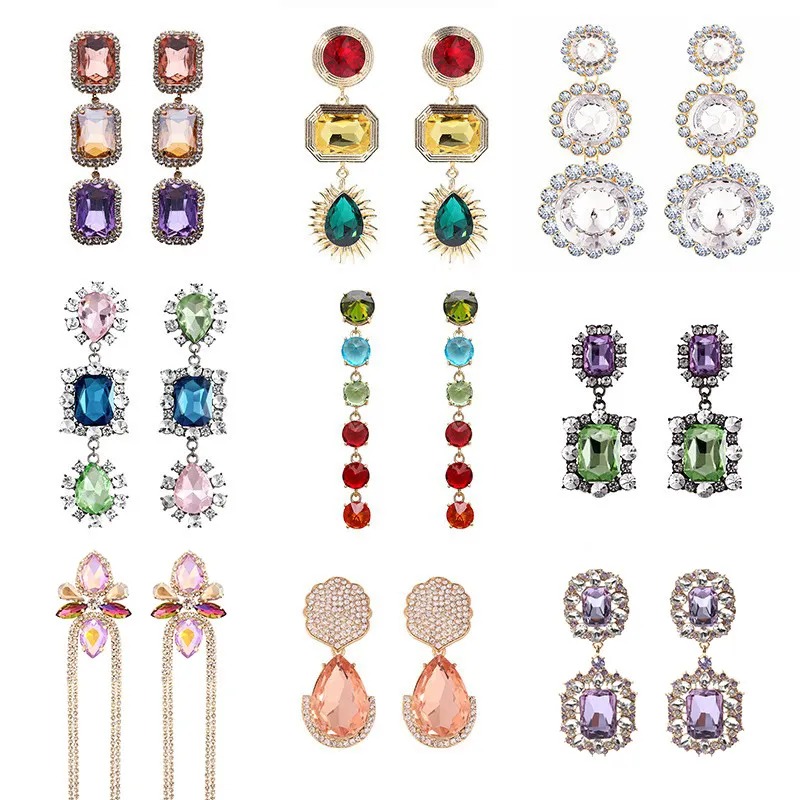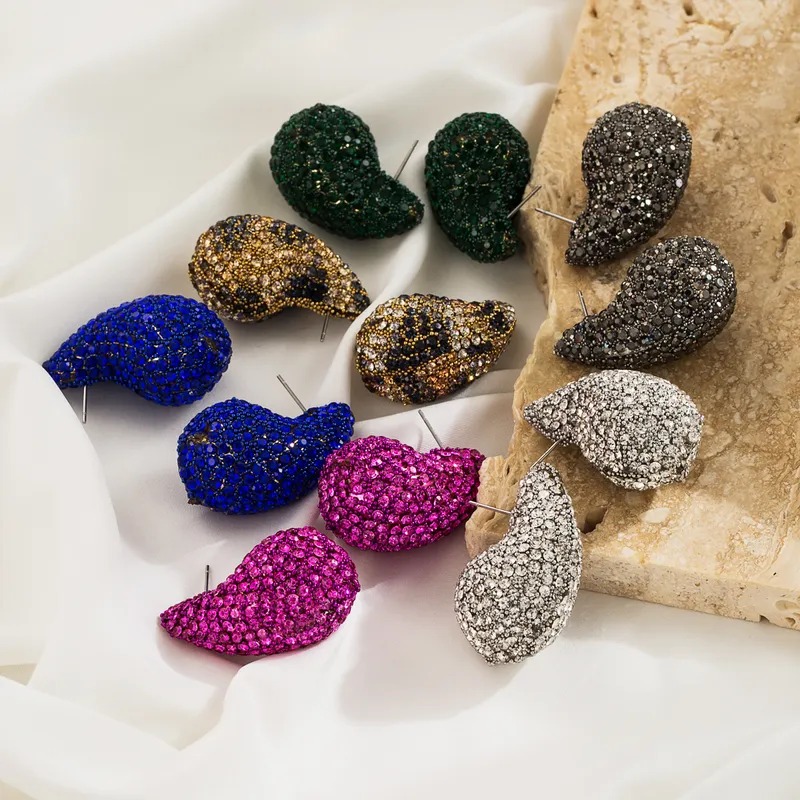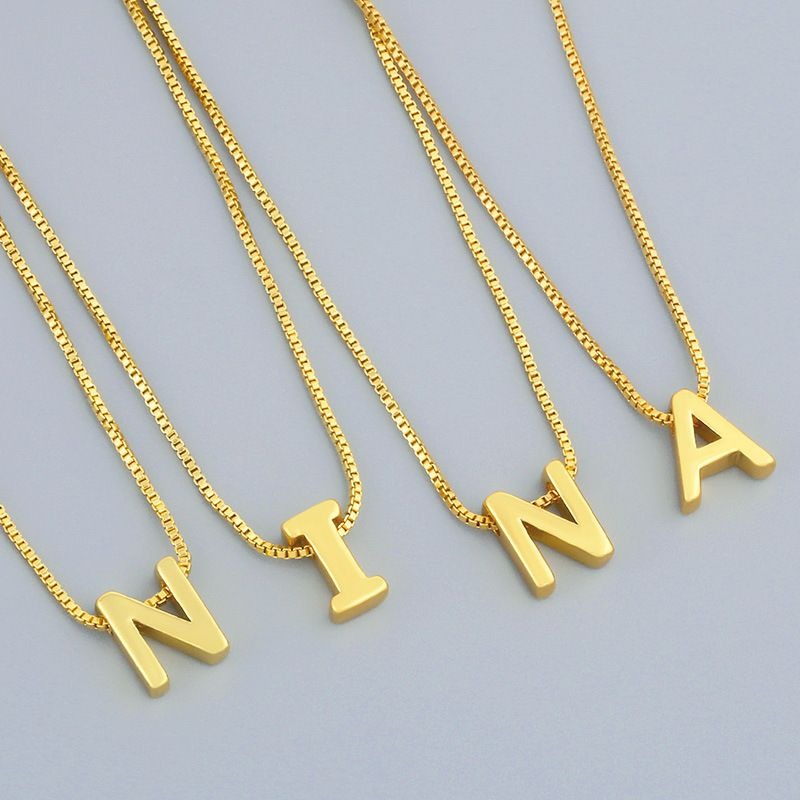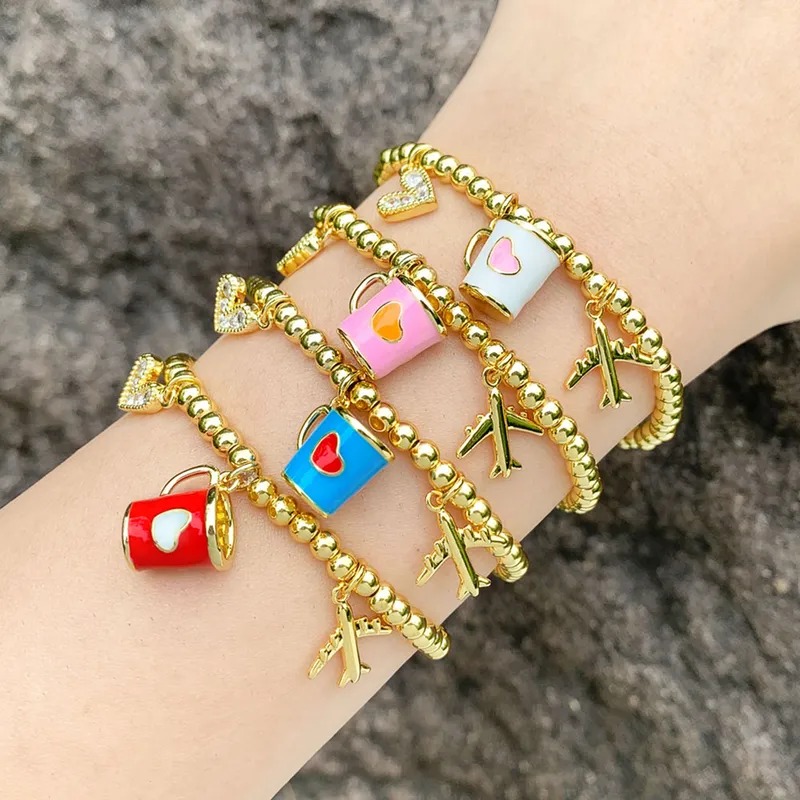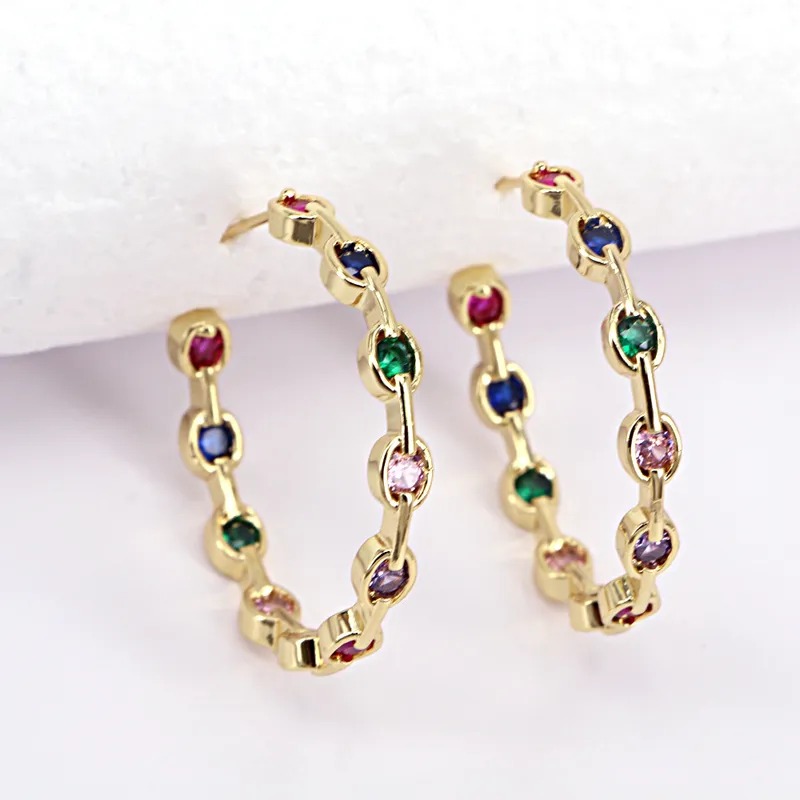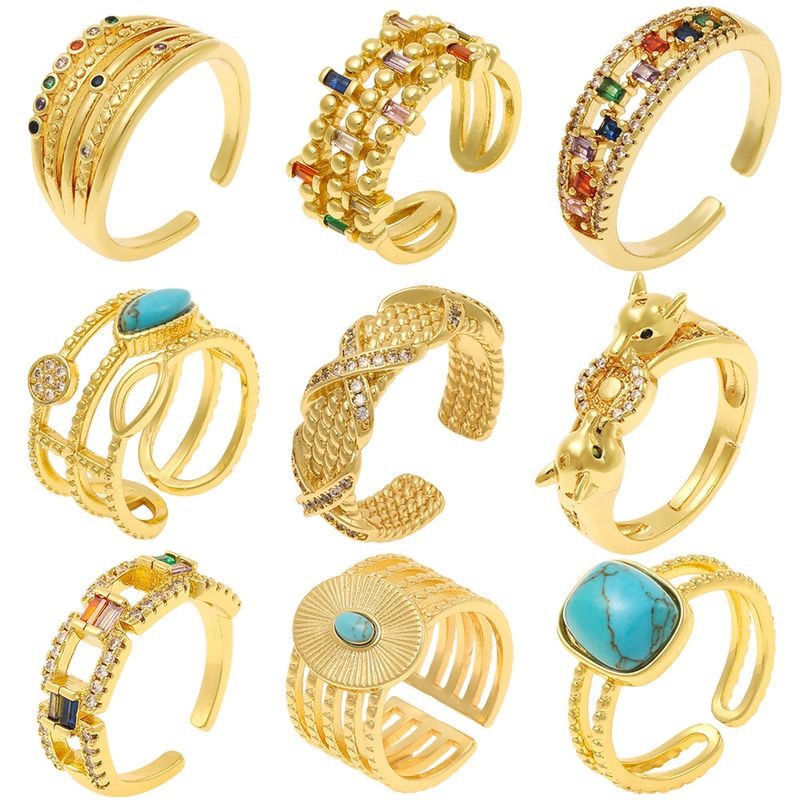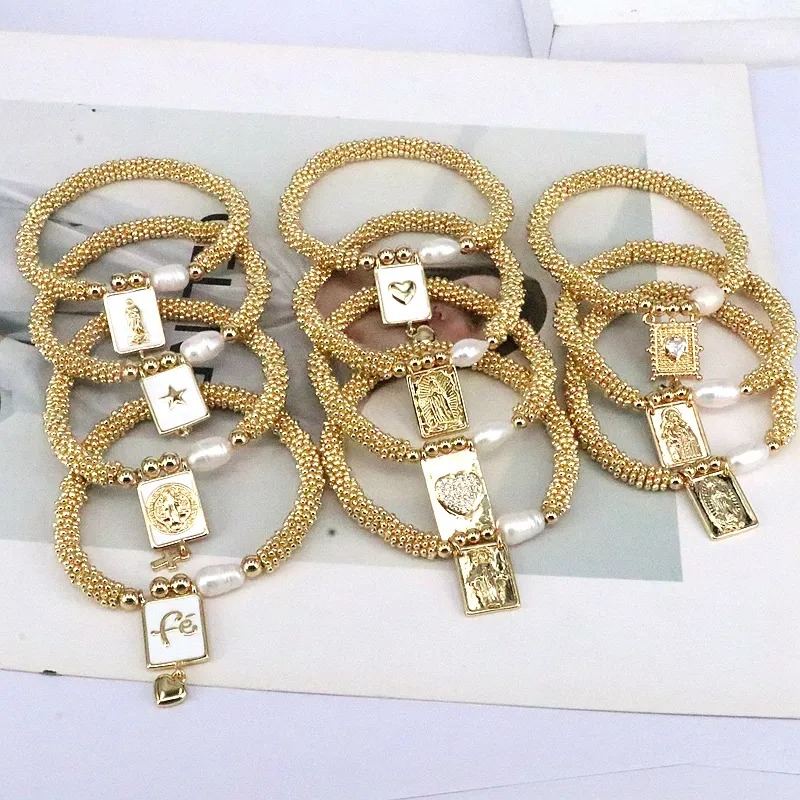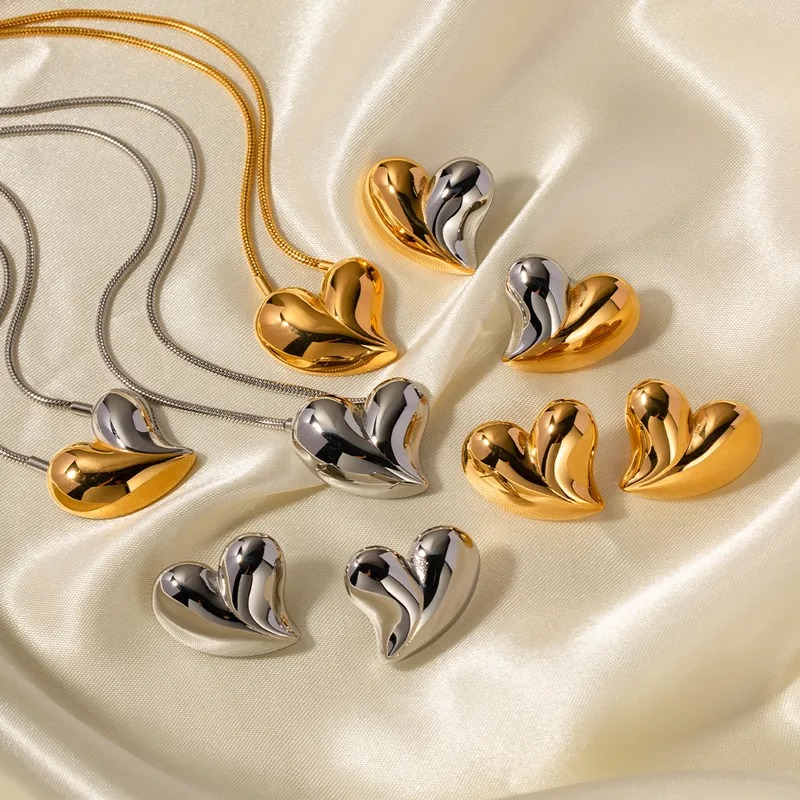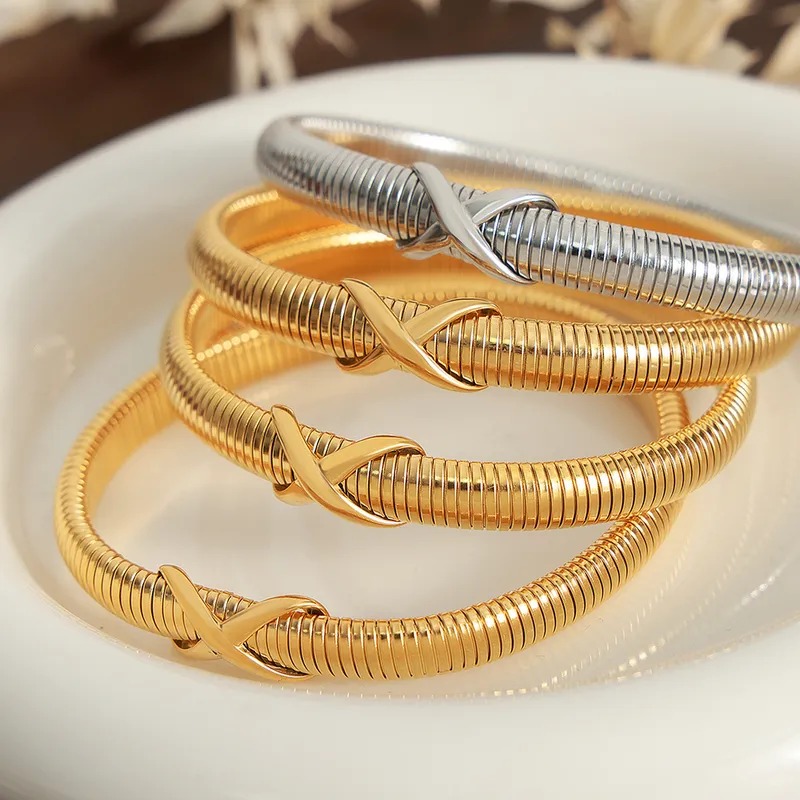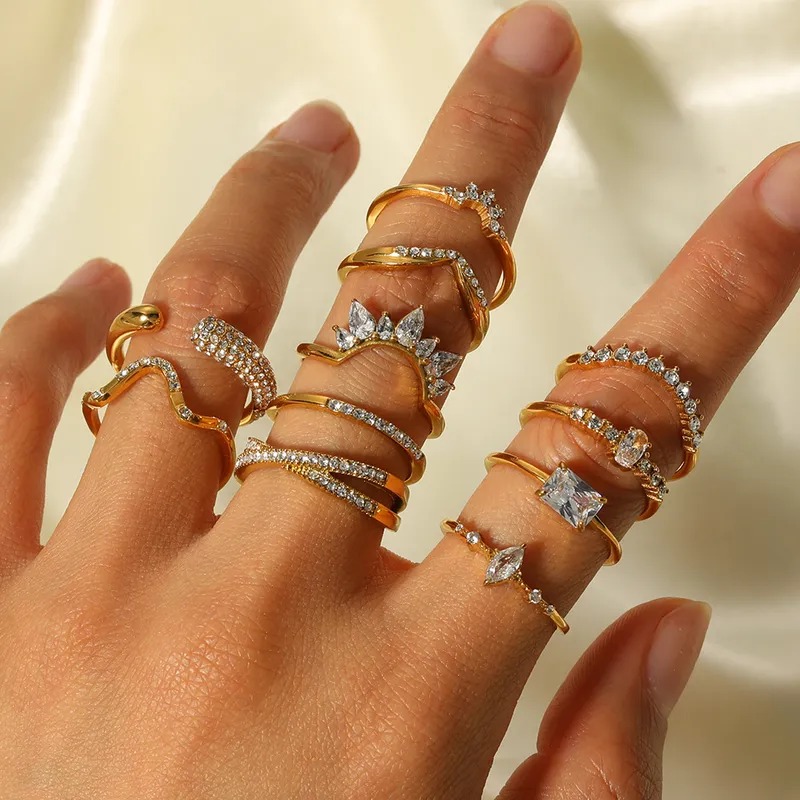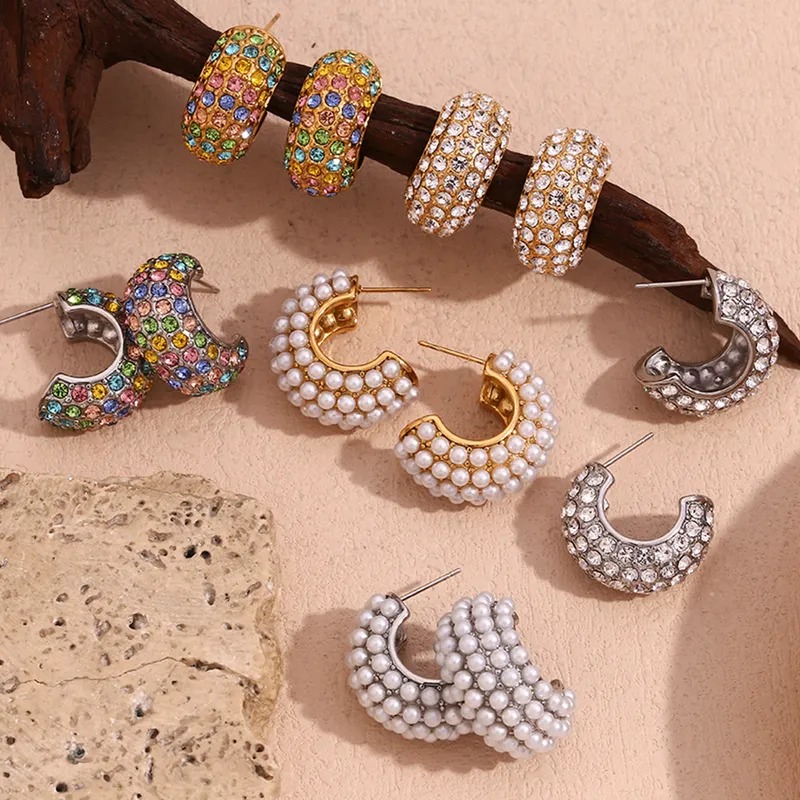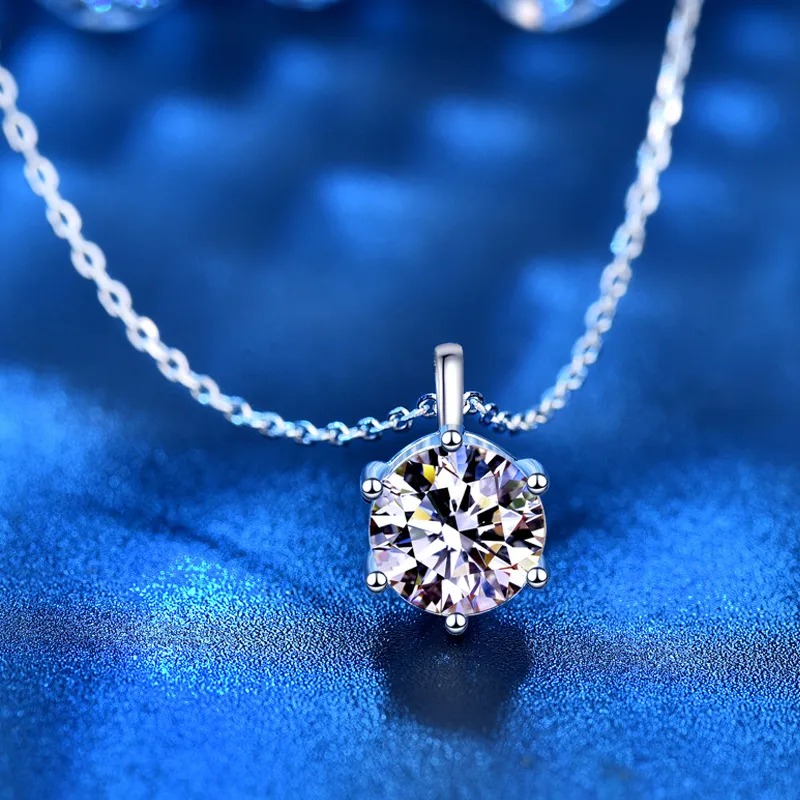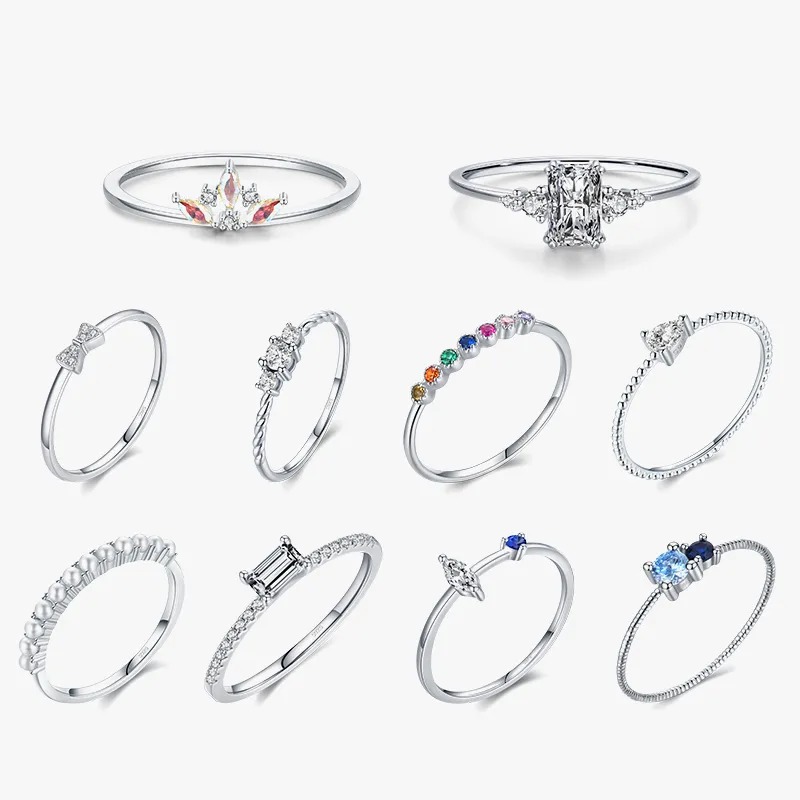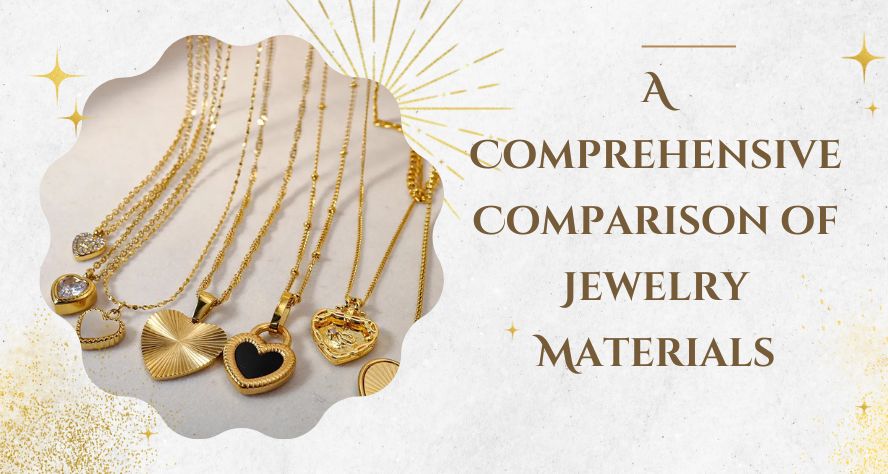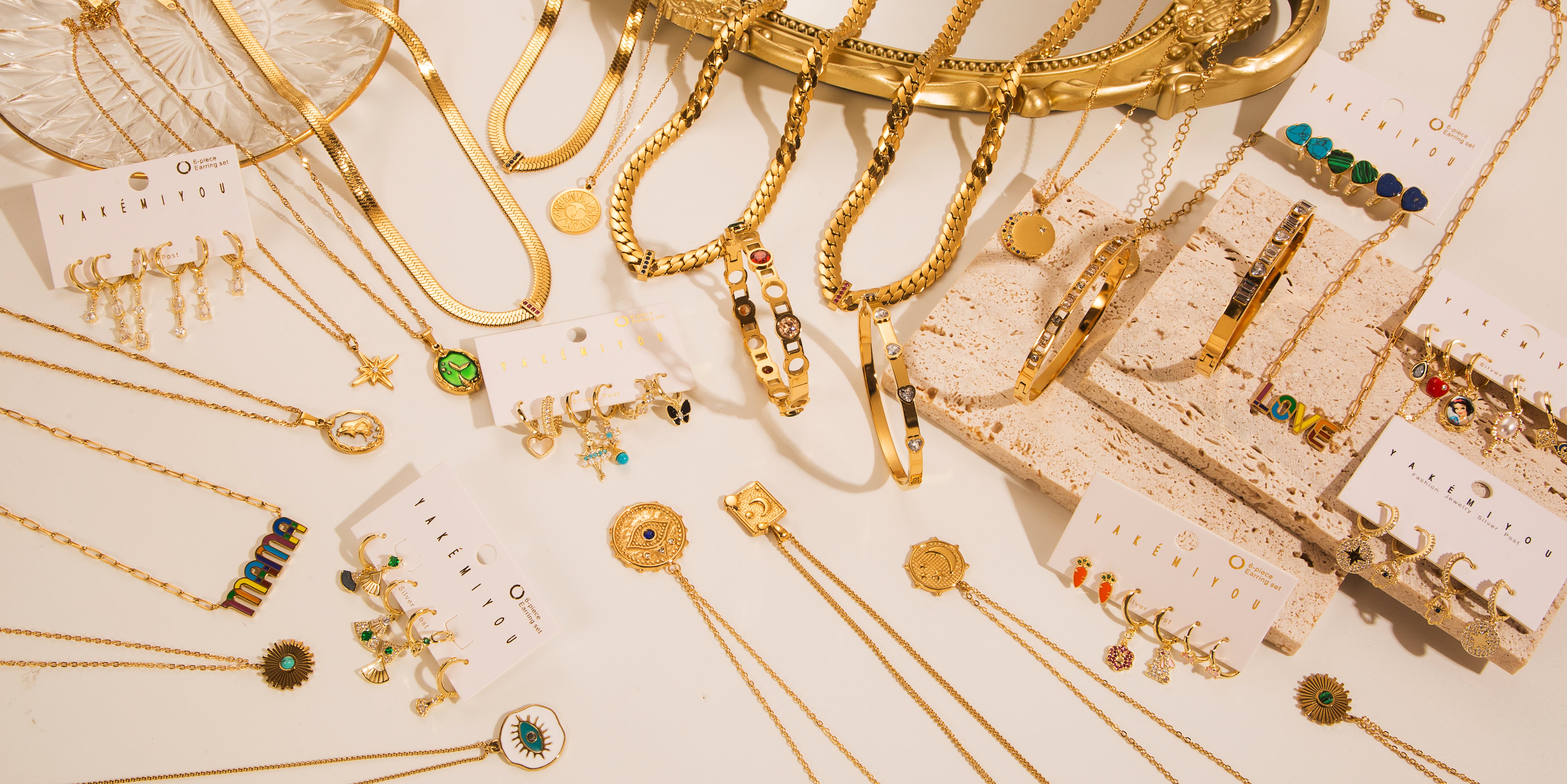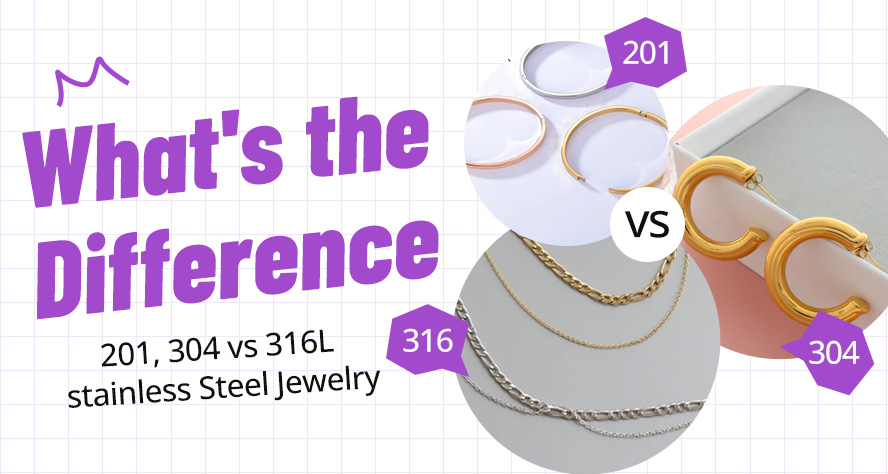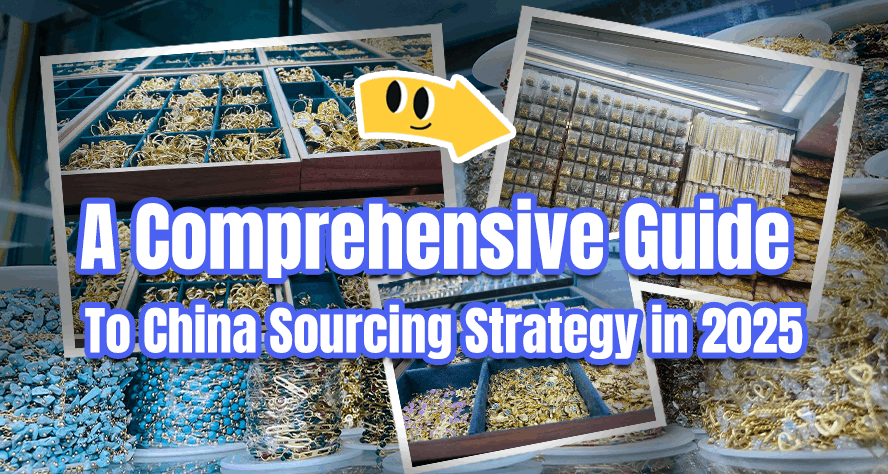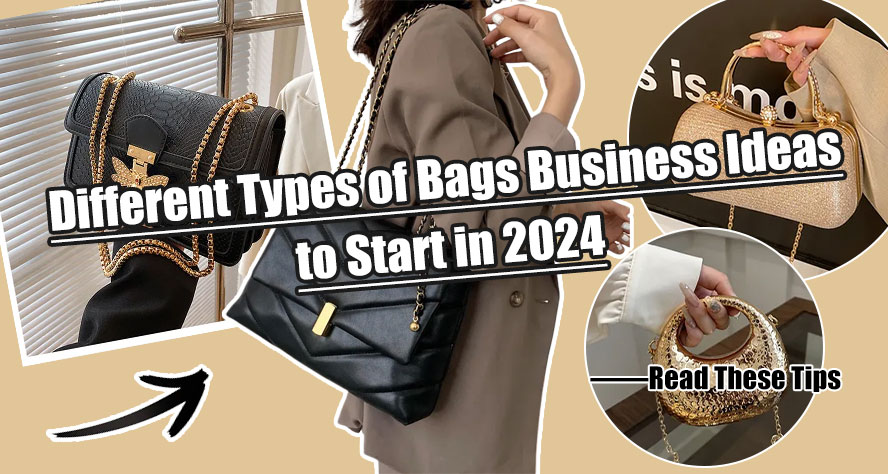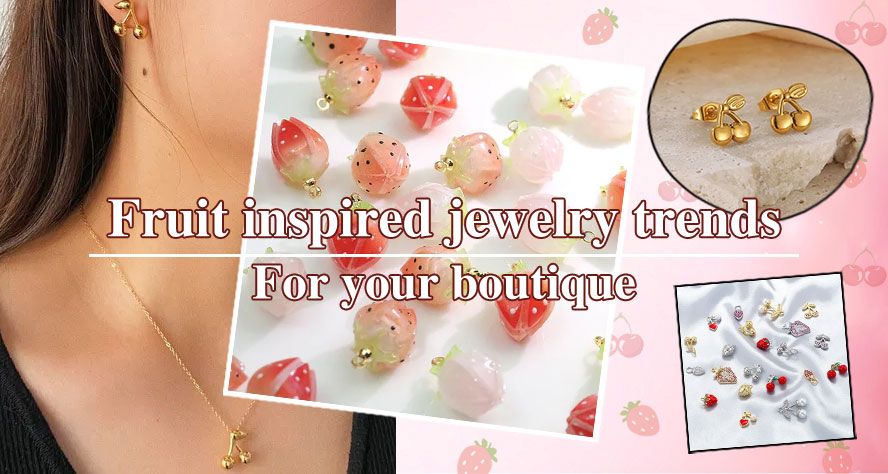As a boutique owner, are you considering selling multiple types of jewelry materials? Do you want to make sure you get what you pay for?
With so many choices at Nihaojewelry, it can be a challenge to understand the different types of metals used in jewelry.
This knowledge not only helps you make an informed purchasing decision but also allows you to provide detailed information to your customers, enhancing their shopping experience and trust in your brand.
Fashion jewelry is usually made of stainless steel, copper, or silver as a base and plated with a thin layer of precious metals such as silver or gold.
Some jewelry materials can also be inlaid with gemstones, zirconia, pearls, and so on.
Let’s take a detailed look at the most commonly used jewelry materials: alloy, copper, stainless steel, and silver.
Here’s everything you need to know about the metals used in jewelry making. Read on and learn more.
Alloy
Alloy, meaning it’s a combination of metals. There are silver alloys, copper alloys, iron alloys, etc. The price is affordable.
What is alloy jewelry?
Most of the products on the Nihaojewelry website under the fashion jewelry category are made of alloy.
Alloy jewelry is jewelry made by combining two or more metals and applying a water-plating process with a thin layer of real gold.
The color retention time of alloy jewelry is relatively short, mostly 2-3 months.
The raw materials for alloys are relatively inexpensive, and alloy jewelry sells for under $2, making it a great investment for boutiques.
Alloy jewelry can be easily molded into different shapes and designs with a variety of styles, making it a popular choice for fashion jewelry.
Among them, there are more jewelry sets inlay with rhinestones, mostly in Western style. Click here to learn more.
Features of Alloy Jewelry
- The most affordable option is a great way to achieve a luxurious look without spending too much.
- By combining different metals, alloys can achieve a wider range of colors than pure metals.
- Some alloys are stronger and more durable than pure metals.
- Catering to different looks, a wide variety of alloys can be combined to create jewelry that complements a wide range of styles.
- Some alloys, especially nickel-free alloys, are a good choice for people with metal allergies.
- Alloys can be made from recycled metals, which can appeal to environmentally conscious consumers.
Care Tips for Alloy Jewelry
Alloy jewelry can lose its luster over time, especially when exposed to air, water, and chemicals.
Loss of luster can cause the metal to dull and even become brittle.
Alloy jewelry requires some care:
- Avoid exposing alloy jewelry to moisture, including water, sweat, and humidity.
Advise customers to remove their jewelry before swimming, showering, or participating in activities that may cause the jewelry to become wet.
- Store alloy jewelry separately from other jewelry to prevent scratching or tangling.
Consider using separate bags, jewelry boxes with compartments, or soft cloths to protect each item.
- Keep alloy jewelry away from harsh chemicals such as perfumes, lotions, hairsprays, and cleaning products.
- Polishing regularly: Polish your alloy jewelry regularly with a soft, non-abrasive polishing cloth.
If necessary, you can also use a mild soap diluted in warm water. Rinse thoroughly and dry with a soft cloth before storing.
- Keep your alloy jewelry in a cool, dry place away from direct sunlight. Prolonged exposure to high temperatures can cause the plating to fade or peel off.
Copper
After gold and silver, copper is one of the most jewelry materials used in jewelry making.
Copper’s high degree of malleability and unique reddish-brown color make it an excellent material for jewelry making.
what is copper jewelry?
Copper jewelry uses copper as the base jewelry material, using a vacuum plating process, plated with a layer of real gold made of jewelry.
The color retention time of Copper jewelry is long. Among them, the color of 14k and 18k plating will be deeper.
Copper is inexpensive and easy to work with. Since copper is a soft metal, it is more malleable and easier to shape.
The inlay jewelry materials are mainly zircon, which is colorful and popular in Mexico.
Additionally, copper jewelry often has a vintage or bohemian style that is perfect for casual and relaxed outfits. Click here to learn more.
Features of copper jewelry
- Copper has an attractive reddish-brown color, unique and eye-catching.
- Highly malleable. Easy to work with and can be molded into a variety of intricate designs.
- Copper is a durable metal. Although it Ability to form a natural patina, it will not rust.
- Low maintenance, a simple wipe with a soft cloth will restore its luster.
- Copper is a more affordable way to go than precious metals. Copper is an excellent choice for budget-conscious boutique owners.
- Although not scientifically proven, some customers believe copper jewelry has health benefits such as improved circulation and relief from joint pain.
Care Tips for Copper Jewelry
Copper jewelry loses its luster and ability to form a natural patina over time.
As a result, copper can cause skin discoloration and irritation in some people, especially those with sensitive skin.
- Copper is a soft metal and scratches easily. Use a soft cloth (such as a microfiber cloth) to clean copper jewelry.
- Advise customers that wear copper jewelry in the shower or while swimming. Exposure to water can cause copper jewelry to lose its luster quickly.
- Use a mild cleaner: avoid using harsh chemicals to clean your copper jewelry.
- Store in a dry place, such as a jewelry box or bag. Moisture can cause your copper jewelry to tarnish quickly.
- Avoid storing your copper jewelry with other metals, as this can cause scratches and damage.
Stainless steel
Stainless steel may not be as prestigious as gold or silver, but it doesn’t lack style.
It is very popular in modern, minimalist, and industrial-style jewelry.
what is stainless steel jewelry?
Stainless steel jewelry is an alloy of chromium, steel, carbon, and nickel. The different content of these elements determines the different grades of stainless steel jewelry: 201, 304, 316L, etc.
Get to know more: What’s the Difference of Stainless Steel Jewelry? 201, 304 vs 316L, All You Want To Know
Stainless steel jewelry is also used vacuum plating process will be stainless steel as the base material plated with a layer of real gold made of jewelry.
Stainless steel jewelry retains its color for a long time, usually up to 1-2 years.
Stainless steel jewelry is a popular choice because of its fashionable style, affordable price, and durability. Click here to learn more.
In addition, the production process of stainless steel jewelry is more mature and the shapes are more diverse. It can be inlaid with zircon, natural stones, pearls, etc.
Stainless steel has a high degree of hardness, making it a great choice for men’s rings or charm bracelets and other frequently worn items.
Stainless steel proves that having durable, stylish jewelry doesn’t need to break the bank.
Features of Stainless Steel Jewelry
- Stainless steel jewelry doesn’t turn black like silver jewelry, doesn’t make people allergic like copper jewelry, and isn’t toxic like alloy jewelry because of the lead content.
- Durable, and excellent for daily wear.
- Affordable, more affordable than precious metals such as gold or silver.
- Requires minimal maintenance and can be easily cleaned with soap and water.
- Anti-allergy options are available, especially nickel-free options. So it is a good choice for people with sensitive skin or metal allergies.
- Hardness provides resistance to scratches and rust.
Care Tips for Stainless Steel Jewelry
Stainless steel jewelry is a low-maintenance choice. Stainless steel jewelry is strong and durable, but it can accumulate dirt and stains over time.
Regular cleaning and maintenance are essential to keep your stainless steel jewelry looking its best.
- Deep clean once a month to remove dirt and grime.
- Wipe your jewelry regularly with a soft cloth or microfiber cloth to maintain its luster.
- Do not use abrasive cleaners or harsh chemicals as they can damage the surface of your jewelry. Clean with warm water and a mild detergent.
Silver
Silver holds a special place in many people’s hearts for its unique luster and understated elegance.
what is 925 silver jewelry?
925 silver jewelry is a layer of real gold plated on the surface of 925 sterling silver with a thickness of at least 3 microns, and in some cases up to at least 5 microns, through a water plating process.
NIHAO adds a thicker layer of gold plating to the silver jewelry, so it is also resistant to rust and corrosion. The color retention is up to 1-2 years.
The gold plating we add to our silver jewelry is gold and rose gold to make it look and feel like real gold jewelry, while the silver is generally plated with a thin layer of rhodium for added shine and durability.
925 Sterling Silver, a precious metal, can be combined with today’s more popular gemstone types such as Moissan, Cultivating Colored Gemstones, or inlay with natural stones. Click here to learn more.
Features of 925 Silver Jewelry
- Affordable: Sterling silver offers the luxury of precious metal without the high price of gold or platinum.
- Versatile: Its neutral color pairs well with all gemstones and suits a variety of styles, from vintage glamour to modern simplicity.
- Durability: Although sterling silver is softer than some jewelry materials, it can last for a long time with proper care.
- Hypoallergenic: Suitable for sensitive skin.
- Oxidizes easily: it tends to lose its luster, especially when exposed to air, water, and chemicals. Remember to remind customers not to take a shower or run for fitness to wear it.
Care tips for 925 Silver Jewelry
- Clean regularly with a soft cloth and neutral soapy water.
- Store in an airtight container to prevent color fading.
The main difference between different jewelry materials
In short, all jewelry is plated with a thin film of pure gold on different substrates to preserve the color more permanently.
These are priced of jewelry materials from lowest to highest: alloy – copper – stainless steel – silver
To help you quickly understand the advantages and disadvantages of each jewelry materials, we have created the following comparison chart:
| jewelry materials | Advantages | Disadvantages |
| Alloy jewelry | The most economical choice for a wide range of styles, environmentally friendly | Short color retention period, 2-3 months, loses luster over time |
| Copper jewelry | Cheaper, more malleable, and easier to style. | Scratches easily and over time copper jewelry loses its luster and ability to form a natural patina. |
| Stainless steel jewelry | Highly durable, rust-resistant, hypoallergenic, and affordable. | Hardness may be difficult to resize or repair. |
| 925 Silver Jewelry | Anti-allergic material can be processed into more delicate styles. | Easy to oxidize and lose luster. |
Choosing the Right Jewelry Materials for Your Boutique
Choosing the right jewelry materials for your boutique requires careful consideration of various factors. The following guide can help you make this decision:
Target audience: Who are you selling to? Different regions will have different style preferences, in addition to price sensitivity and allergies.
Price: Are you catering to the budget-conscious or the luxury market? Price is an important factor when choosing the type of jewelry to sell, as it can greatly affect the profitability of your business.
Style: Match your material selection to your overall brand style.
For minimalist boutiques, focus on sleek metals like silver. Bohemian-inspired stores may benefit from adding copper or natural gemstones. Stainless steel may work best for a modern minimalist aesthetic.
Maintenance: Certain jewelry materials require more frequent cleaning to maintain their luster. Consider the level of care your customers are willing to invest in.
Research Current Trends: Stay up to date on popular styles and materials in the jewelry market.
In Conclusion
By understanding the different jewelry materials, you can confidently design a jewelry collection that caters to different tastes and budgets.
Remember, the perfect metal depends on your brand image, your target audience, and the unique style you want to showcase.
By offering a variety of jewelry materials, you can cater to different preferences and needs, ensuring that every customer can find their favorite piece of jewelry.
This blog features the most common jewelry materials, but there are many other options to explore! For more tips and insights on boutique jewelry collections, stay tuned to our blog.
